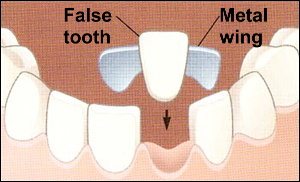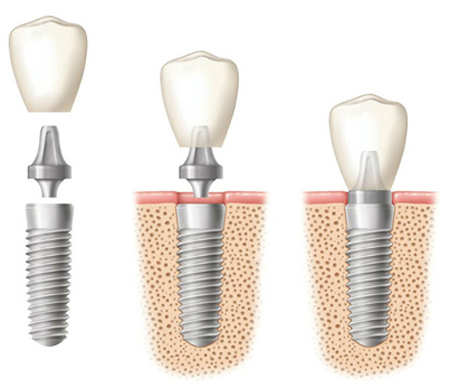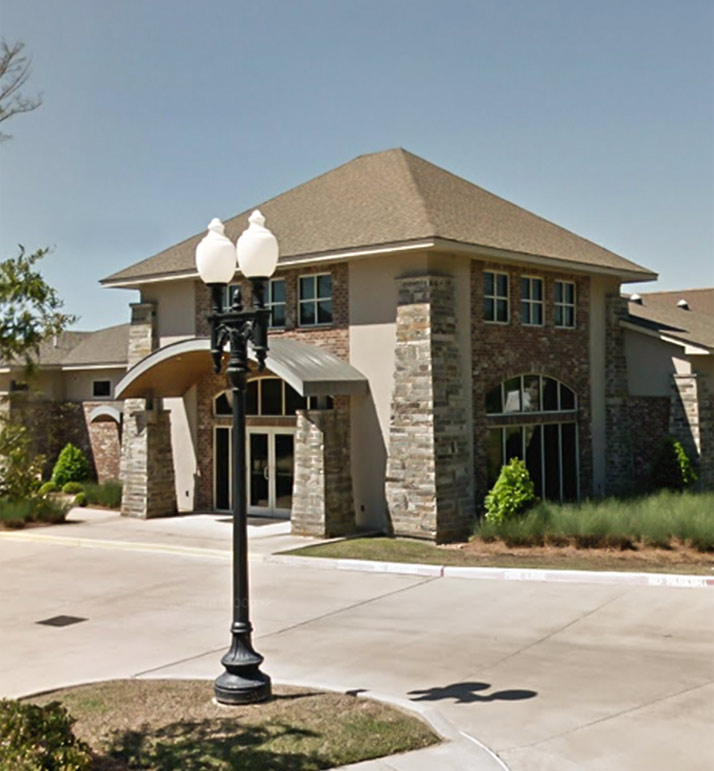My dentist is recommending dental implants for two upper-left missing teeth. But while doing research online, I read about a Maryland bridge. When I mentioned it to my dentist, she said that it’s possible to do a Maryland bridge, but she prefers implants for better results. I thought the patient’s choice is what mattered. I’m doing my best to choose an option that will work just fine without spending a lot of money. I’ve trusted her over the years, but now I’m wondering if her preference is biased because dental implants bring in more money to her practice. What’s wrong with getting a Maryland bridge? – Karl
Karl –
While it is possible to receive a Maryland bridge for two missing teeth, the stress on the bridge increases with the number of replacement teeth you add. Consider a comparison of the two options:
Maryland Bridge
1. What Is a Maryland Bridge?

Maryland Bridge
A Maryland bridge is a porcelain tooth baked onto a metal framework. The wings of the frame are bonded to the backsides of adjacent natural teeth.
2. How Does It Work for Two or More Missing Teeth?
Adding a tooth to the bridge puts twice as much vertical force on it. The longer the span of the bridge, the more it will bend and flex as you apply force to it when biting or chewing. The bending and flexing have several effects:
- Put stress on the abutment, which is the metal plate bonded to the backside of adjacent teeth
- Increase pressure on the teeth
- Loosen the bonding and the bridge
Dental Implants
3. How are Dental Implants Different?

Dental implants provide a solid anchor and don’t require work on adjacent teeth.
Your dentist or an oral surgeon will replace each missing tooth by inserting an implant in your jawbone. Nothing will be attached to the adjacent teeth. In three to four months, implants fuse with your jawbone and provide solid anchors for dental crowns. Dental implants remain stable during the forces of biting and chewing.
4. Reasons Your Dentist Is Recommending Implants
Your dentist recommends dental implants because they are more stable and durable than a Maryland bridge—especially when replacing multiple missing teeth. Implants withstand the forces of biting and chewing. You’ll get better long-term results with dental implants.
This post is sponsored by Monroe, LA dentist Dr. David Finley.





